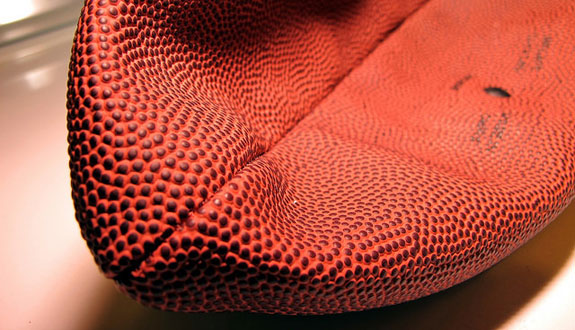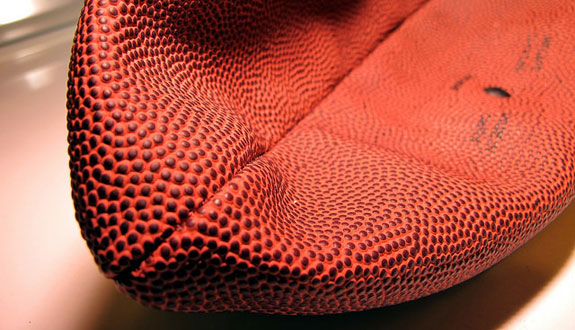Law Student Perspective: Deflategate
- by
- Jan 27, 2015
- LSAT, Sports
- Reviewed by: Matt Riley


Hey there, sports fans! Today’s post is dedicated to a topic that has dominated headlines and social media for the last week—Deflategate. You’ll get perspective from one law student (me) on fallacies in the the media, as well as the potential ramifications for the Patriots organization.
Before we go any further, there’s one pet peeve I feel compelled to address: this habit of adding “gate” to the end of any scandal really needs to stop. Not only does it not make sense (Watergate was the actual name of the hotel where the Nixon scandal began—it wasn’t Watergate-gate), but it is also an unoriginal way for the media to sensationalize an issue without putting in any effort.
With that rant aside, let’s get back to the topic at hand. I think there are two major areas of flawed reasoning driving this whole story: ad hominem arguments and temporal fallacies.
Ad hominem arguments are directed “against the man”—they attack the person rather than the issues. The two individuals most heavily discussed in the context of Deflategate are Bill Belichick and Tom Brady. For years, Bill Belichick has been the villain of the NFL. The perception is that he will do anything to win, no matter the cost. This perception was bolstered in 2007, when the Patriots were fined and stripped of draft picks for recording their rival team’s practices (shockingly enough, this scandal was referred to as “Spygate”). Tom Brady is also a tent pole of disdain and criticism; it is very easy for fans of other teams to resent and insult a millionaire athlete with a supermodel wife, especially when he can’t seem to get a high-five. The general sentiment is that the Patriots are responsible for Deflategate because Brady and Belichick are bad guys. This argument is fallacious. As much as I, a die-hard 49ers fan, want to blame the Patriots’ duo, I can’t do so just because I don’t like them.
The media coverage is also rife with examples of temporal fallacies. As I mentioned earlier, the Patriots were penalized for recording another team’s practices. People seem to think that, if the Patriots cheated then, they must be cheating now. After all, once a cheater, always a cheater, right? Logically speaking, wrong. On the LSAT, you want to be on the lookout for this kind of logical fallacy—you can’t use past events to prove present actions. Similarly, in court, parties are not permitted to introduce this kind of flawed reasoning to the jury. Don’t be fooled if you hear these arguments being bandied around.
Even though these commonly articulated arguments are flawed, the Patriots may face serious ramifications if the NFL finds (non-fallacious) evidence that they were involved in deflating the footballs. In a previous NFL scandal, in which the Saints gave bonuses to their defense for knocking other teams’ players out of games with vicious hits, the Saints’ head coach was suspended and his team was fined and stripped of draft picks (this one was referred to as “Bountygate”—are you sensing a trend here?). Based on Spygate and Bountygate, the NFL would need to levy equally severe penalties if it wanted to maintain its legitimacy. To give it a legal analogy, a judge would lose credibility if he or she chose to ignore binding legal precedent that was directly on-point and rendered an aberrant decision. As a result, the Patriots could be facing a harsh punishment in the near future if the NFL finds evidence to substantiate the accusations.
I, personally, think this is just a way for the media to drum up a story and captivate the public’s interest during the off-weeks leading up to the Superbowl. At the end of the day, the Patriots absolutely demolished their opponents in the AFC championship game. As one of the opposing players put it, the Patriots could’ve been playing with “soap” and they still would have won the game. Of course, if they did doctor the balls, they should be punished. But there does not seem to be any credible evidence linking the organization to the deflated footballs. It seems perfectly reasonable that the footballs lost some air as a result of the weather conditions. Until the case against the Patriots goes beyond criticizing Brady and Belichick, assuming they must have known about the balls, or relying on disconnected past actions, I just don’t buy it.
Search the Blog

Free LSAT Practice Account
Sign up for a free Blueprint LSAT account and get access to a free trial of the Self-Paced Course and a free practice LSAT with a detailed score report, mind-blowing analytics, and explanatory videos.
Learn More
Popular Posts
-
logic games Game Over: LSAC Says Farewell to Logic Games
-
General LSAT Advice How to Get a 180 on the LSAT
-
Entertainment Revisiting Elle's LSAT Journey from Legally Blonde








